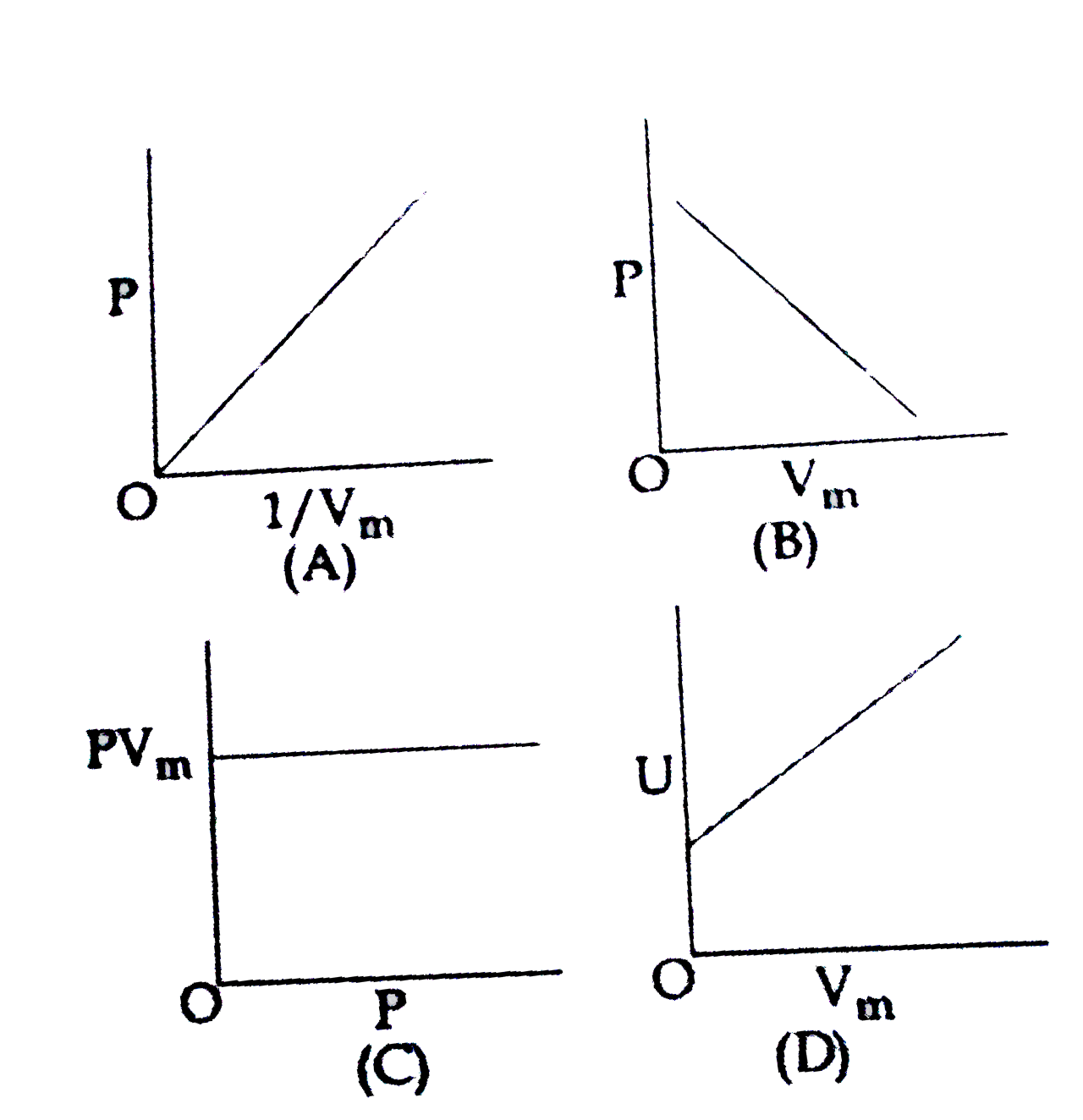In the isothermal expansion of an ideal gas
ΔU=0
ΔT=0
q=0
W=−q
The correct Answer is:A, B, D
Step-by-Step Solution:
1. Understanding the Process:
- The question refers to the isothermal expansion of an ideal gas. In an isothermal process, the temperature (T) of the system remains constant.
2. Applying the First Law of Thermodynamics:
- The first law of thermodynamics is given by the equation:
ΔU=Q+W
where:
- ΔU = Change in internal energy
- Q = Heat exchanged
- W = Work done by the system
3. Identifying Changes in Internal Energy:
- For an ideal gas, the internal energy (U) is a function of temperature. Since the process is isothermal (constant temperature), the change in temperature (ΔT) is zero:
ΔT=0
- Therefore, the change in internal energy (ΔU) is also zero:
ΔU=0
4. Substituting into the First Law:
- Substituting ΔU=0 into the first law equation:
0=Q+W
- Rearranging gives:
W=−Q
- This indicates that the work done by the gas is equal in magnitude but opposite in sign to the heat absorbed by the gas.
5. Conclusion:
- In an isothermal expansion of an ideal gas:
- The change in internal energy (ΔU) is zero.
- The heat exchanged (Q) is not zero.
- The work done (W) is equal to −Q.
Summary of Results:
- ΔU=0 (Change in internal energy is zero)
- Q≠0 (Heat exchanged is not zero)
- W=−Q (Work done is equal to negative heat exchanged)
- The question refers to the isothermal expansion of an ideal gas. In an isothermal process, the temperature (T) of the system remains constant.
- The first law of thermodynamics is given by the equation:
ΔU=Q+W
where:
- ΔU = Change in internal energy
- Q = Heat exchanged
- W = Work done by the system
- For an ideal gas, the internal energy (U) is a function of temperature. Since the process is isothermal (constant temperature), the change in temperature (ΔT) is zero:
ΔT=0
- Therefore, the change in internal energy (ΔU) is also zero:
ΔU=0
- Substituting ΔU=0 into the first law equation:
0=Q+W
- Rearranging gives:
W=−Q
- This indicates that the work done by the gas is equal in magnitude but opposite in sign to the heat absorbed by the gas.
- In an isothermal expansion of an ideal gas:
- The change in internal energy (ΔU) is zero.
- The heat exchanged (Q) is not zero.
- The work done (W) is equal to −Q.
- ΔU=0 (Change in internal energy is zero)
- Q≠0 (Heat exchanged is not zero)
- W=−Q (Work done is equal to negative heat exchanged)
Similar Questions
Assertion: The heat absorbed during the isothermal expansion of an ideal gas against vacuum is zero.
Reason: The volume occupied by the molecules of an ideal gas is zero.
View SolutionAssertion: The heat absorbed during the isothermal expansion of an ideal gas against vacuum is zero.
Reason: The volume occupied by the molecules of an ideal gas is zero.
View Solution
Knowledge Check
During the isothermal expansion of an ideal gas, its
internal energy increases
enthalpy decreases
enthalpy remains unaffected
enthalpy reduces to zero.Ainternal energy increasesBenthalpy decreasesCenthalpy remains unaffectedDenthalpy reduces to zero.
For the isothernmal expansion of an ideal gas
View SolutionSTATEMENT-1 : The Heat absorbed during the isothermal expansion of an ideal gas against vacuum is zero.
STATEMENT-2 : The volume occupied by the molecules of an ideal gas is zero.
View SolutionIn an isothermal expansion of an ideal gas. Select wrong statement:
View SolutionSelect the correct statement for isothermal expansion of an ideal gas
View SolutionThe combination of plots which does not represent isothermal expansion of an ideal gas is :

View SolutionShow that in an isothermal expansion of an ideal gas, a ΔU=0 and b. ΔH=0.
View SolutionShow that in an isothermal expansion of an ideal gas, a ΔU=0 and b. ΔH=0.
View Solution
